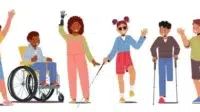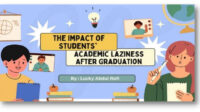English education department study program is one of the undergraduate (S1) study programs that available at many universities in Indonesia, which is quite in demand by the new generation who want to become competent and suitable with the standard English teachers. The appearance of that study program is room for prospective educators who interested in it to be competent and professional in their fields. Because in this study program, students learn about English, but students will get teaching knowledge and education. For example, pedagogy, classroom mastery, educational psychology, curriculum, and learning media. So, students who are the part of English education department study program are indeed prepared to generate the prospective of professional educationists in the future.
Read More: The Women Who Become Expressive Feminists and Fangirls
These students are prepared to become competent in their fields (educationists). However, does each of these students have the same interest (to become a teacher)? In reality, millennials have no interest to become a teacher. Why is it? Because they thought about their future. If they are teachers, they will get the low wages given, and there are no allowances and benefits for teachers. So that the millennial generation is less interested in becoming a teacher, and they prefer professions that are more promising for their future. That is as stated by Totok Prayitno (2019) as Head of the Research and Development Agency at the Ministry of Education and Culture (quoted from Medcom. id: Kemendibkud: The Interest to Become a Teacher is Low, “Wake Up Call”). What an irony this fact. But, students who are prepared to become educators are not forced to have an interest in becoming educators. After graduating, they can choose any profession appropriate to their dreams.
Read More: World Religions
We know that low interest in prospective educationists to become teachers. Are there job opportunities for graduates of English education department study programs? In addition to being educationists (teachers and lecturers who have to continue with a minimum Masters of Degree), graduates of the English education department can also work in offices like graduates from other study programs. The graduates of the English education department have career opportunities to become a translator, tour guides, language, and education researchers and built their jobs such as opening language courses. So, there are some job opportunities for its graduate that college students who are prepared to become prospective educators still do not have an interest in it. They can take the other opportunities. So it is hoped that students do not need to be afraid of the darkness after graduating to become an educationist.
Read More: Indonesia: Kecakapan Bahasa Inggris Kian Melemah

In conclusion, the English education study program is indeed prepared to make someone a competent and professional educationist. In addition to the knowledge of languages obtained on campus, the prospective educators will be equipped with academic knowledge, such as pedagogy, classroom mastery, learning media, etc. So that graduates are expected to be competent according to their field (English). However, it is not forced for students to have an interest in becoming an educationist. Because the English education graduate can work as an educationist but has extensive prospects such as being a tour guide, translator, language and education researcher, and so on. So that, we hope that all students of the English education department study program can be professional in their fields even though they are not a teacher in the future.
Nadia Meilani Salsabila
Mahasiswa Universitas Indraprasta PGRI
Editor: Diana Pratiwi















